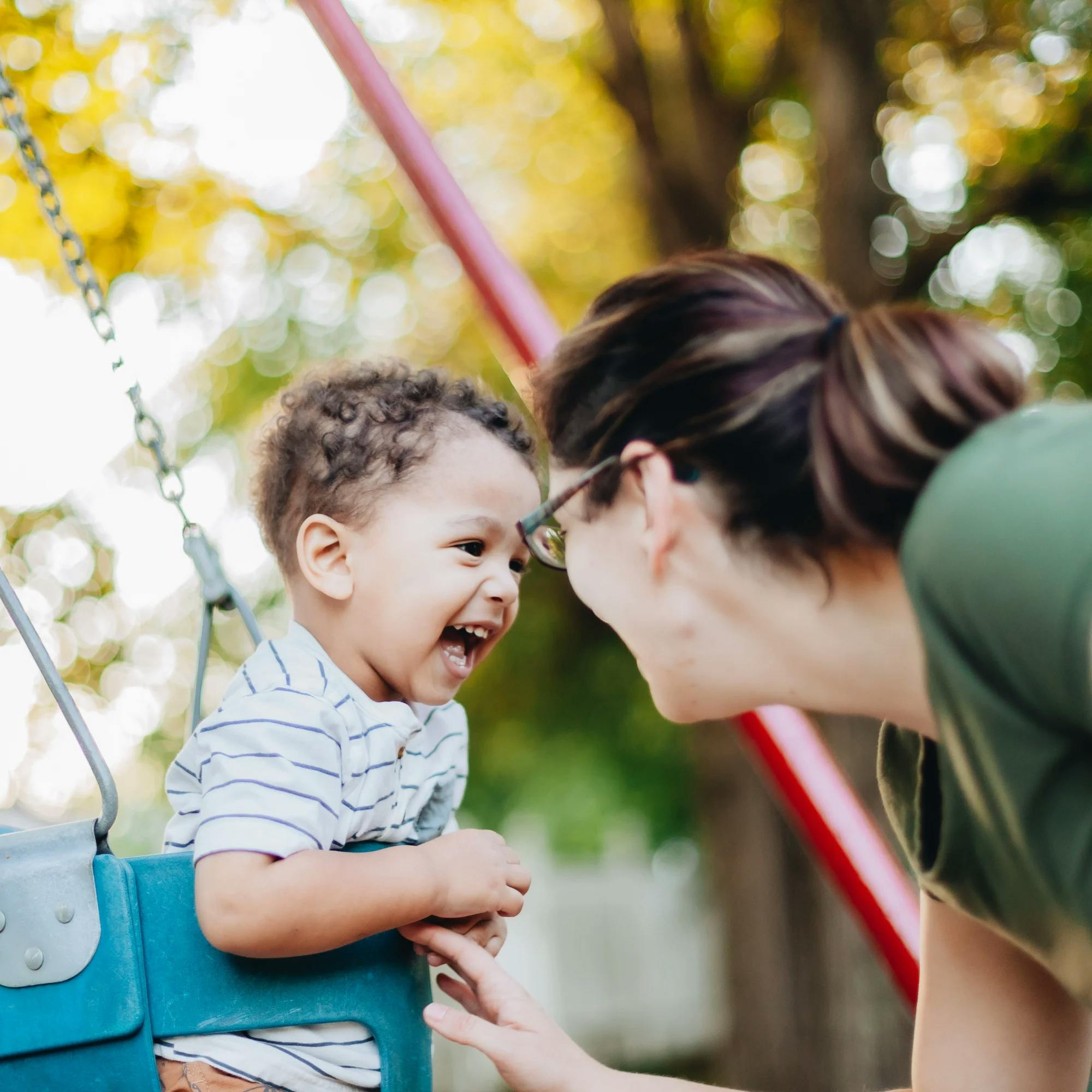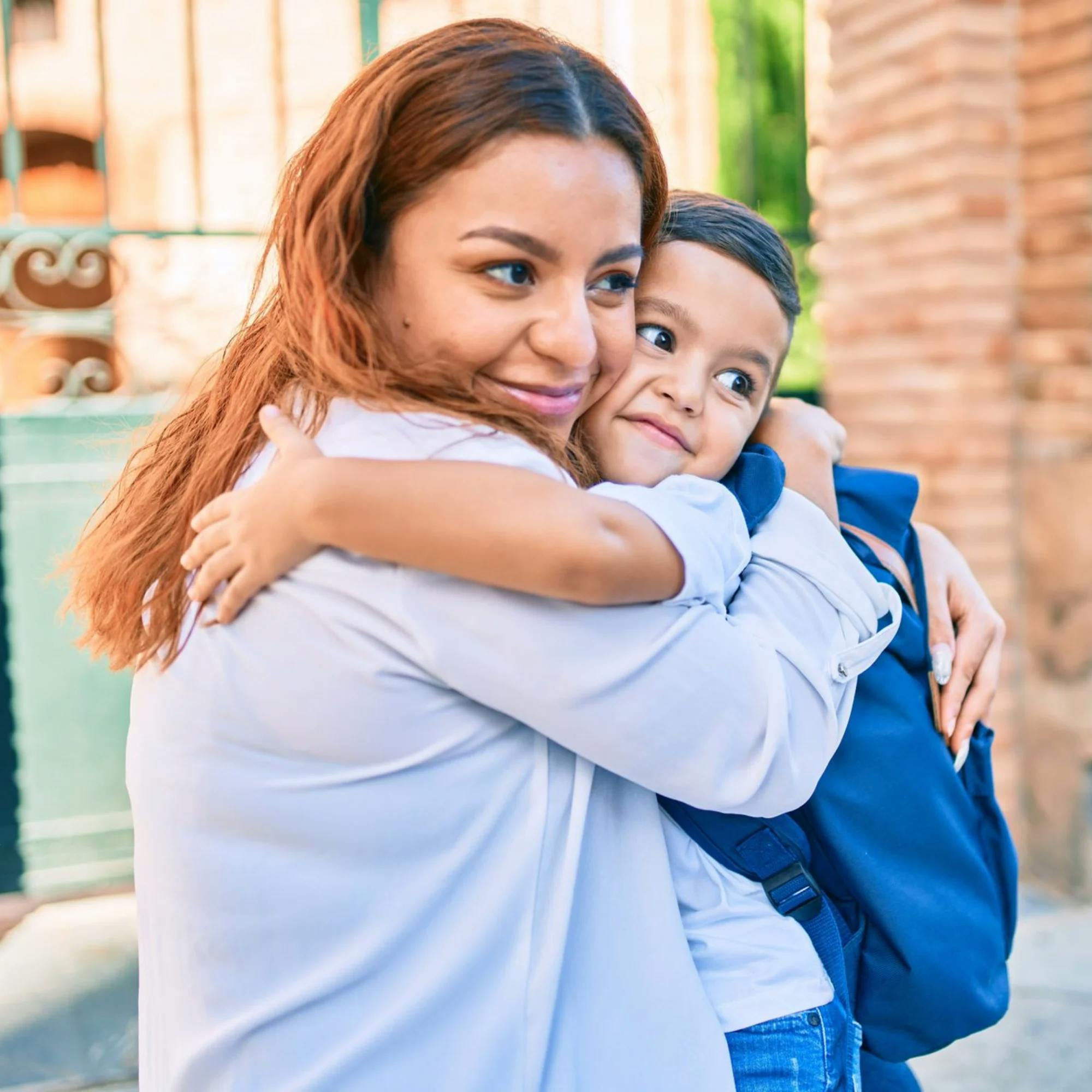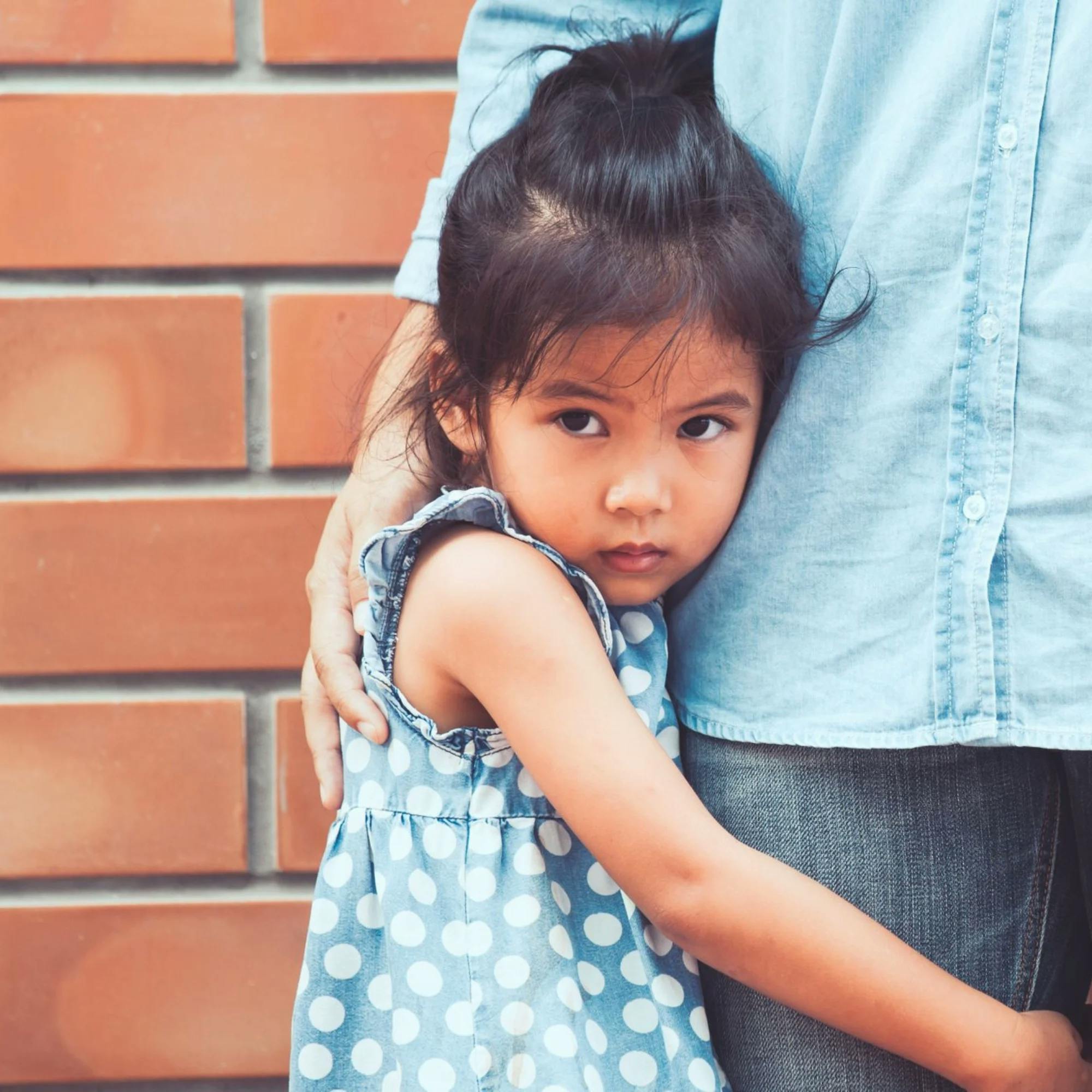For families who have adopted a child, whether domestically or from another country, questions about speech and language development are common. If your child seems to be a late talker, is it because they’re adjusting to a new home or language? Or do they have a speech delay caused by something else? How do you know if your child needs speech therapy?
Let’s take a look at why speech and language delays are common in adopted children. We’ll discuss when speech evaluations are recommended, and how parents can help support their child’s language growth at home.
Find the right speech therapist for your child
We'll match you with a licensed speech therapist who's experienced in your child's needs and available when you are.
 Get started
Get startedWhy are speech delays so common in adopted children?
According to the National Council for Adoption, speech delays and communication challenges are among the most common issues that families encounter after adoption. This is the case for both international and domestic adoption. This may be due to several factors:
Many children who have been in foster care or institutionalized care may have experienced neglect, multiple caregivers, and limited opportunities to hear and use language
Adoptees may have medical conditions that parents are unaware of, such as frequent ear infections, low muscle tone in the jaw and mouth, or hearing problems
The trauma that is often associated with foster care and adoption can also affect language development
How internationally adopted children transition to a new language
If your child was adopted from another country, it’s normal for there to be a period of transition as they acquire, or learn, a new language. Much of how a child acquires a new language depends on the age they are at adoption. Children who are adopted at age 2 or younger are likely to have age-appropriate skills in their new language by one year after their adoption.
At the same time, most children will lose their skills in their birth language rapidly once they are adopted. They are no longer surrounded by the language, hearing it spoken every day.
Much of how a child acquires a new language depends on the age they are at adoption.
Children adopted at older ages are more likely to have a harder time learning their new language. If the child was living in an orphanage, this may be a factor. A longer amount of time spent in an orphanage is associated with higher risks of a language delay in the birth language.
There is also a higher language demand on children as they get older. That means there are more skills an older child must learn in order for their speech and language to be considered age-appropriate. Here’s an example: A 1-year-old child is only expected to be able to say a few words. A 6-year-old child should be able to use sentences, answer questions, and pronounce words clearly. This means that children adopted at older ages may be more likely to need speech therapy in order to “catch up.”
No matter a child’s age at adoption, adoptive parents should try to find out as much as possible about the child’s communication skills in their birth language. There may not be much information available, but whatever you can learn will help. If a child is known to have a speech and language deficit before they’re adopted, they should begin receiving speech therapy as quickly as possible.

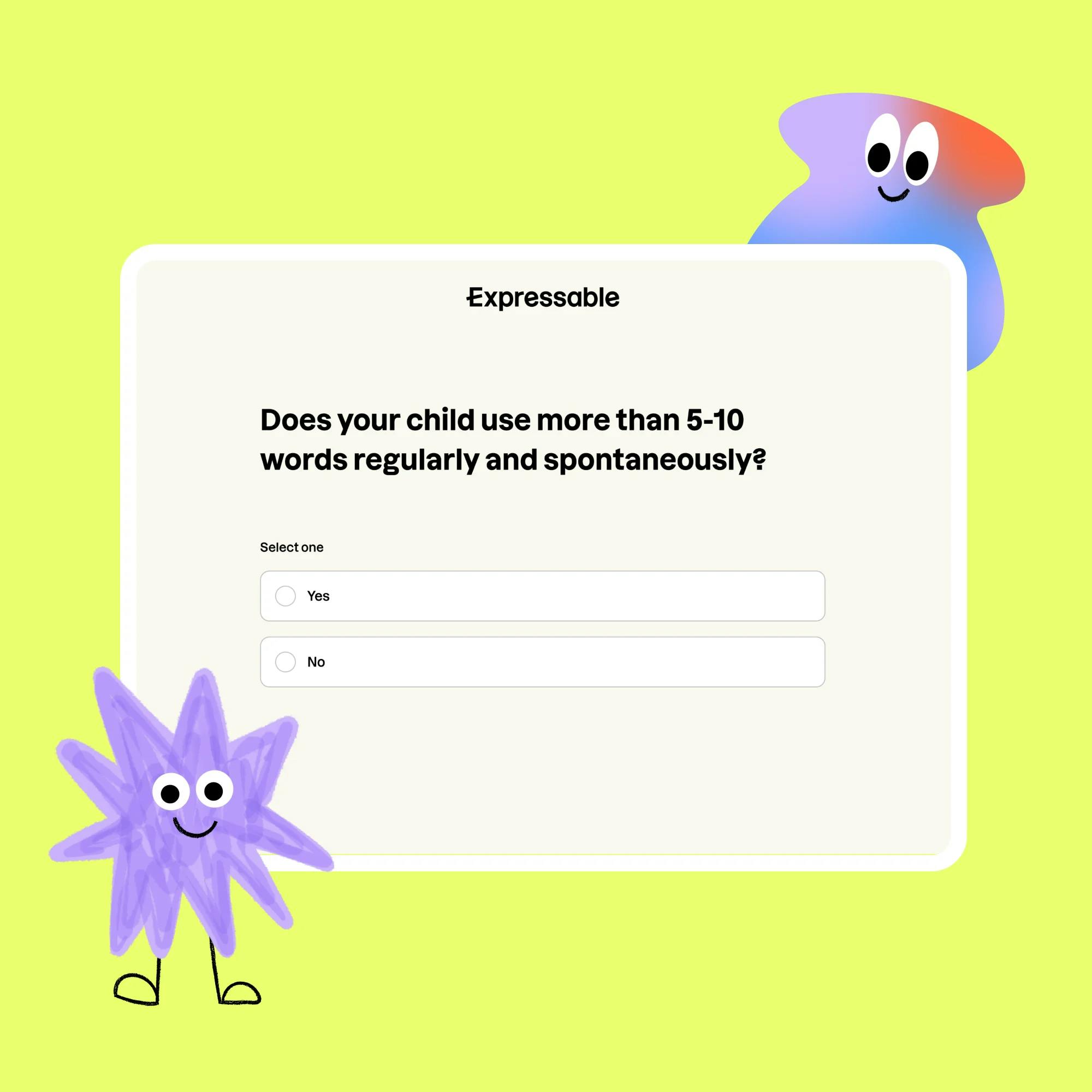
Speech and language evaluations for adopted children
International adoptees
Researchers have recommended that international adoptees receive a speech and language evaluation at least 3 times during their first year home, if possible. An annual evaluation is recommended after that first year.
Your child’s pediatrician may recommend a different screening schedule depending on your child’s background and needs. But as children grow, difficulty with speech and language, literacy, or academics can appear at any point. So ongoing evaluations are a good idea.
Because children will quickly lose their birth language, the time in which they can be assessed by a speech therapist fluent in that birth language is very short–only about 2 to 3 months after adoption.
If a speech therapist fluent in the birth language, or an interpreter, is not available, then a speech therapist fluent in the child’s new language should evaluate the child around 3 to 6 months after their adoption. They can assess how the child appears to be transitioning to their new language and determine if speech therapy is recommended.


Domestic adoptees
Even if your child is not learning a new language, trust your gut. If you have any concerns about their communication, it’s worth it to schedule a speech and language evaluation. Children of all ages can benefit from speech therapy, from babies through teens. But the earlier a child receives speech therapy intervention, the more quickly they can make progress. Early intervention can also decrease the severity of their speech delay over time.


4 ways to help your child gain new language skills
There are many ways you can help your child develop their speech and language skills. As their parent, you’re in a unique position to help them! Here are 4 techniques that are easy to use and have big benefits.
1 Talk to your child frequently
If your child is learning a new language, gesturing and using facial expressions can help you communicate with them. But it’s also essential to talk to them. All kids have to hear language in order to learn new words. Hearing you talk helps them learn how to form sentences and produce new speech sounds. So keep talking, even if they can’t answer you yet or don't have many words.
Here’s an easy way to do this. When you’re interacting with your child during any daily routine, explain what you’re doing, almost as if you’re narrating your day. Take the time to name the things you see, and repeat them often. This is called modeling language.
When you’re interacting with your child, explain what you’re doing, almost as if you’re narrating your day.
Let’s look at an example. Say you’re making dinner, and your child is watching or helping you in the kitchen. You can show them the different ingredients and utensils you’re using, making sure to point to and name the items: “spaghetti,” “butter,” “spoon.” You should also describe what you’re doing so your child can hear structured sentences, not just single words. You can say, “I pour the spaghetti in the pot.” or “The water is hot!”
2 Read books together
Reading with a parent or caregiver can help adopted children who are learning a new language or strengthening their language skills. As you read, take time to point to and describe the pictures, repeat sounds and words, and use interesting tones of voice. And don’t worry about reading the same books over and over–this repetition is a great way for kids to learn language.
Make it a habit to read daily with your child. Right before naptime or bedtime works well for many families. Your child will be ready to settle down and share a story together. Along with language development, it’s a great opportunity for bonding and attachment.


3 Sing songs with your child
Singing songs and nursery rhymes together is another way to build your child’s speech and language skills. Plus, it’s an opportunity for the two of you to connect and have fun.
Singing helps kids learn new vocabulary words, and it prompts them to watch, imitate, and repeat after you. Fun, repetitive songs like “The Wheels on the Bus,” “The Itsy Bitsy Spider,” and “Old MacDonald Had a Farm” are great standbys.


4 Give your child opportunities to communicate on their own
It can be tempting to focus on teaching and modeling new words, but it’s just as important to give your child a chance to use these words themselves.
You can do this through a technique called communication temptations. This involves presenting a highly motivating activity or item to your child and encouraging them to communicate in some way in order to receive it.
Here’s an example. If your child is on the swing and you know they want to be pushed, pause and stand by the swing for a moment to see what they do. Do they look at you? Do they gesture? Do they attempt to tell you what they want? You can model words for them to imitate, like the name of the item (“swing”) or functional words like “push” and “go.”

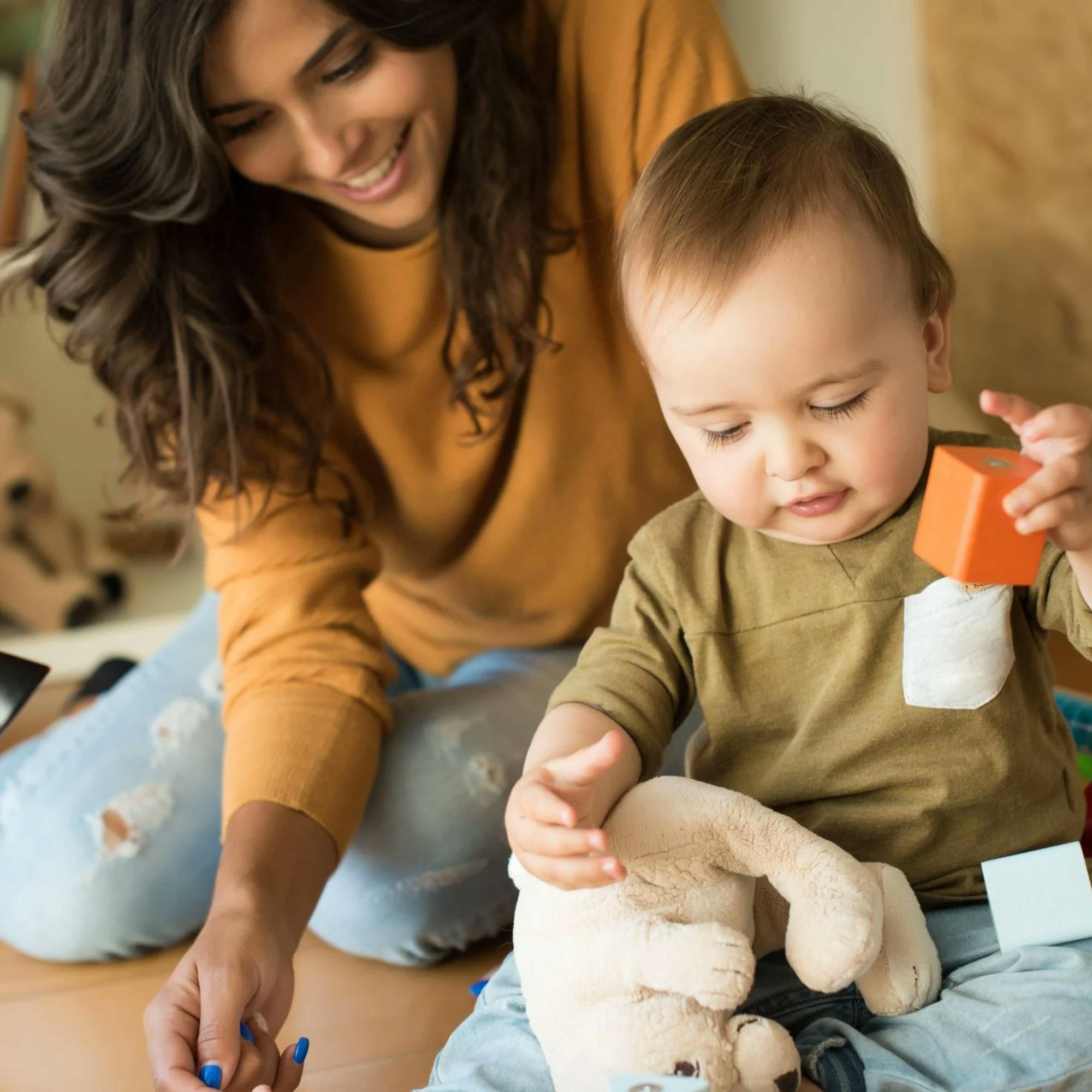
Schedule a speech evaluation
An evaluation can help determine if your child is on track with their speech and language. Finding a speech-language pathologist, commonly known as a speech therapist, is the first step. You’ll want to consider the therapist’s qualifications, where you want your child to receive services, and whether health insurance is a factor. This article can walk you through the process.
Most adoptees who have developmental speech and language delays catch up to their non-adopted peers within a few years of joining their family. Don’t wait–the sooner speech therapy begins, the sooner your child will be able to express themselves and share their thoughts, needs, and feelings with you.
How Expressable Can Help
Concerned your child isn't reaching age-expected milestones? Looking for communication support from a professional? Expressable is a national online speech therapy practice serving children and adults. We treat all major areas of communication and feeding, offer flexible hours including evenings and weekends, and accept most major health insurance plans. We’re proud to have earned more than 3,000 5-star reviews from our clients (4.9/5 average).
Our therapy model is centered on parent and caregiver involvement. Research proves that empowering caregivers to participate in their loved one’s therapy leads to better outcomes. That’s why we combine live, 1-on-1 speech therapy with personalized education and home practice activities for faster progress.
Communication is more than words. It’s how we share how we feel and show who we are. We’re here to help you or your child do just that.

 Abby Barnes, M.S., CCC-SLP
Abby Barnes, M.S., CCC-SLP


